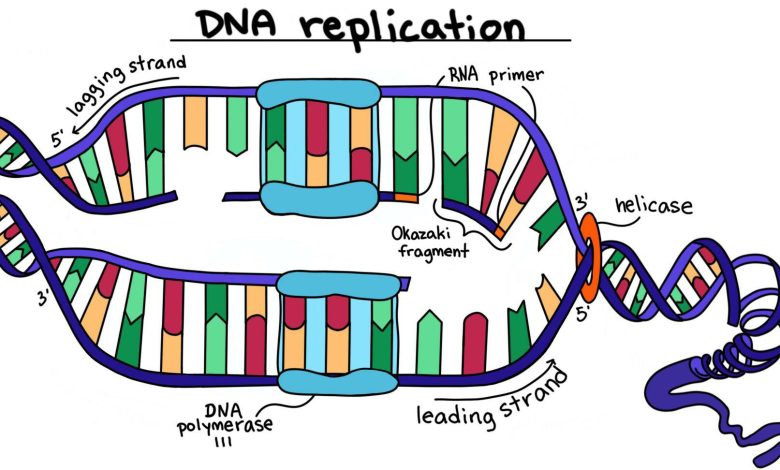The Science of Genetic Cloning: Unlocking the Mysteries of DNA Replication

Genetic cloning, a groundbreaking scientific endeavor, has opened new frontiers in our understanding of DNA and the potential applications in various fields. This article delves into the intricacies of genetic cloning, exploring the underlying science, its methods, and the ethical considerations that accompany this powerful technology.
Defining Genetic Cloning
Genetic cloning is the process of creating genetically identical copies of organisms, cells, or DNA fragments. This scientific technique allows researchers to replicate genetic material with precision, paving the way for advancements in medicine, agriculture, and biological research.
Reproductive Cloning:
Reproductive cloning involves creating an organism that is genetically identical to another. This is achieved through somatic cell nuclear transfer (SCNT), where the nucleus of a somatic cell is transferred into an egg cell whose nucleus has been removed. The resulting cell is stimulated to divide and develop into a clone.
Therapeutic Cloning:
Therapeutic cloning focuses on creating embryonic stem cells for medical purposes. Similar to reproductive cloning, SCNT is employed, but instead of allowing the cloned cell to develop into a whole organism, it is directed to form specialized cells for therapeutic use.
Molecular Cloning:
Molecular cloning involves the replication of DNA fragments, genes, or specific sequences. This technique is widely used in biotechnology and research to produce copies of genes for further study, gene expression, or the production of therapeutic proteins.
DNA Replication
At the core of genetic cloning is the process of DNA replication. DNA, the blueprint of life, consists of two complementary strands of nucleotides. Enzymes, such as DNA polymerase, facilitate the replication process by unwinding the DNA strands, adding complementary nucleotides, and creating two identical DNA molecules.
Somatic Cell Nuclear Transfer (SCNT)
In reproductive and therapeutic cloning, SCNT is a key technique. It involves transferring the nucleus of a somatic cell (any cell other than a sperm or egg cell) into an enucleated egg cell. The resulting cell contains the genetic material of the donor organism and has the potential to develop into a genetically identical organism or specific cell types.
Medical Advancements
Genetic cloning holds great promise in medicine. Therapeutic cloning, in particular, can produce stem cells that may be used for regenerative medicine, treating conditions such as Parkinson’s disease and spinal cord injuries.
Read More:
Agricultural Improvements
Cloning plants with desirable traits can enhance agricultural productivity. This includes reproducing crops with resistance to diseases, increased yield, or other beneficial characteristics.
Biotechnological Innovations
In biotechnology, molecular cloning is indispensable. It allows the mass production of specific genes or proteins for various applications, from the development of pharmaceuticals to the production of enzymes used in industrial processes.
Reproductive Cloning and Human Ethics
The prospect of reproductive cloning in humans raises ethical concerns, including questions about the potential for creating designer babies, the safety of the cloning process, and the implications for the cloned individual’s identity.
Therapeutic Cloning and Stem Cell Research
Ethical debates surround the use of embryonic stem cells derived from therapeutic cloning. Balancing the potential medical benefits with concerns about the moral status of embryos remains a topic of ethical scrutiny.
Environmental and Agricultural Impacts
Cloning for agricultural purposes prompts ethical considerations regarding biodiversity and the potential environmental impact of cultivating large monocultures with identical genetic makeup.
Advancements in Precision and Efficiency
Ongoing research aims to improve the precision and efficiency of genetic cloning techniques. Enhanced methods may reduce the likelihood of unintended genetic variations and increase the success rate of cloning procedures.
Regulatory Frameworks and Guidelines
The development of clear regulatory frameworks and ethical guidelines is crucial for responsible and transparent applications of genetic cloning. Establishing international standards helps address ethical concerns and ensure the responsible use of this technology.
Conclusion
Genetic cloning, a marvel of modern science, continues to unravel the intricacies of DNA and revolutionize various fields. From medical breakthroughs to agricultural advancements, the applications of genetic cloning are vast and diverse. As science progresses, the ethical considerations surrounding cloning demand careful attention and collaborative efforts to ensure the responsible and beneficial use of this transformative technology.









